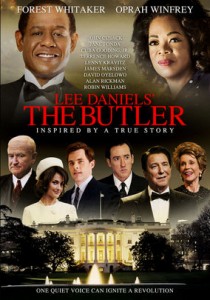Popeye-1980
Director Robert Altman
Starring Robin Williams, Shelley Duvall
Scott’s Review #1,474
Reviewed March 31, 2025
Grade: C+
As a loyal fan of the legendary director Robert Altman, I had never seen his 1980 effort, Popeye, which starred his muse, Shelley Duvall, and then rising movie star Robin Williams.
My favorite Altman films, Nashville (1975), Short Cuts (1993), and Gosford Park (2001), are masterpieces sprinkling overlapping dialogue with enormous casts.
Qualities that I adore.
I hoped Popeye would follow the same formula, but strangely and disappointingly, it doesn’t. The end product feels nothing like an Altman film and is a wacky, jagged attempted comedic affair that results in disappointment.
Desperately, it regains some semblance of control during the mid-section when sentimental and touching musical numbers surface, but this cannot save the film from mediocrity.
The entire affair seems rather pointless and overly messy.
When a muscled sailor named Popeye (Williams) journeys to the port town of Sweethaven, looking for the father (Ray Walston) who deserted him as a baby, he befriends an array of bumbling eccentrics.
He falls madly in love with dorky, sweet-natured Olive Oyl (Duvall).
Conflict erupts when it’s revealed that she already has a suitor, the jealous Bluto (Paul L. Smith). Popeye discovers an abandoned baby, Swee’Pea, whom he raises with Olive Oyl’s help, cementing their courtship. But when the spurned Bluto kidnaps Olive and the child, Popeye takes action with the help of his magic spinach.
Williams and Duvall are wonderfully cast and easily the best part of the otherwise ineffectual film.
The chemistry propels an investment in the couple despite the overreaching, zany dialogue. Williams dazzles with a cartoonish performance that befits who the funnyman would play best during his career despite turns towards more dramatic fare.
There is an infectious likeability factor that oozes from the screen. He’s also surprisingly cute.
Duvall nearly upstages Williams and everyone else with a maddingly frenetic and manic, excellent acting job. The actor was born to play Olive, even suffering from the nickname as a child.
Her constant and irritatingly grating ‘oohs’ are irresistible, and I mimicked her well before the credits rolled, much to my husband’s and my amusement.
The best moments occur midway through, with a combination of hits, such as ‘He Needs Me’ and ‘It’s Not Easy Being Me, which are performances by Duvall and Williams, respectively.
Both songs made me fall in love with the characters and made me thirst for more sentimentality over silliness.
You’d think I would have loved the film if for Williams and Duvall alone.
From the opening sequence, though, I found myself unamused and unenamored with the rest of the film.
Meant to be funny, the Taxman (Donald Moffat), Wimpy (Paul Dooley), and Bluto (Paul L. Smith) feel over-the-top and silly. They each lack any warmth or endearment and seem like caricatures of the cartoon.
The finale is meant to be edge-of-your-seat peril, with an octopus added to eat Olive Oyl and Swee’Pea, presumably. This is mixed with an uninspired performance by Ray Walston as Poopdeck Pappy (Popeye’s father).
Waiting for the spinach representation, but this comes too late in the game. Recognizing Popeye’s dislike for spinach, Bluto force-feeds it to him before throwing him into the water. The spinach revitalizes Popeye and boosts his strength, helping him defeat Bluto and Salty Sam.
Popeye celebrates his victory and his newfound appreciation of spinach.
If I made a list of Robert Altman films, I would rank Popeye (1980) toward the bottom. Reviled by critics at the time of release, the film has grown some appreciation over the years, but I’m not sure why.


